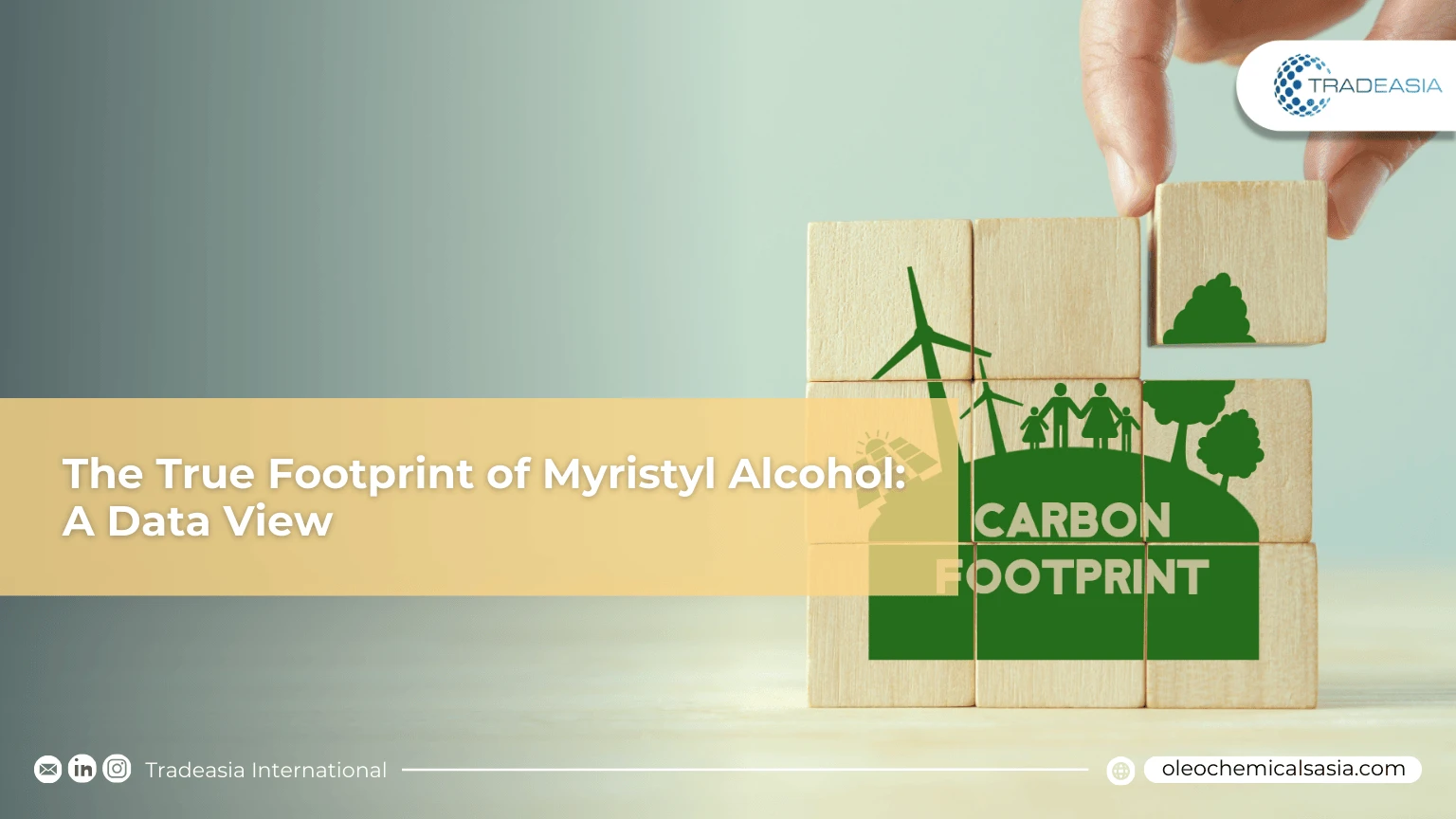Market Insight
25 September 2025
The True Footprint of Myristyl Alcohol: A Data-Driven Perspective
Palm Derivatives

Table of Content
- Efficiency Measured in Hectares and Liters
- The Human Dividend of Responsible Sourcing
Market Insight
25 September 2025
Palm Derivatives

In today’s market, "sustainable" has become a buzzword. But for businesses making serious commitments, generic claims are no longer enough. The demand this September is for transparency and tangible proof. What, then, do the numbers actually say about the sustainability of a key oleochemical like Myristyl Alcohol? It’s time to move beyond the label and into the data.
Answering this call for clarity is central to what we do. At Tradeasia International, we empower our partners with the data they need to make sourcing decisions that are not only economically sound but also verifiably responsible, ensuring every transaction is backed by integrity.
The story of Myristyl Alcohol's sustainability begins on the farm, with unparalleled efficiency. To produce just one ton of this valuable ingredient, its palm oil feedstock requires an average of only 0.3 hectares of land. This is a staggering difference when compared to the 1.1 hectares needed for a coconut-derived equivalent or the 1.9 hectares required for rapeseed. In a world with finite resources, this land-use efficiency is a powerful advantage. The story continues with water, where modern best practices at certified mills have cut consumption by over 40% in the past decade, demonstrating a clear commitment to continuous environmental improvement.
True sustainability, however, is measured in more than just environmental metrics. It has a deeply human dimension. The positive impact on farming communities at the source is perhaps the most crucial return on investment. For us, a truly successful trade is one that uplifts the communities at the very start of the supply chain. The production of every 1,000 tons of certified sustainable Myristyl Alcohol directly supports the livelihoods of approximately 40 smallholder farmers and their families through fair trade practices. For discerning buyers, this isn't just a statistic; it's a confirmation that their procurement choices can drive meaningful social progress.
Sumber:
Oleochemicals Asia - Palm Oil Most Efficient Oil-Bearing Crop
IUCN Report - Oil palm and biodiversity
Oxfam International - The 'human cost' of conflict palm oil: How big brands are connected to rights abuses in Indonesia
We're committed to your privacy. Tradeasia uses the information you provide to us to contact you about our relevant content, products, and services. For more information, check out our privacy policy.
Leave a Comment